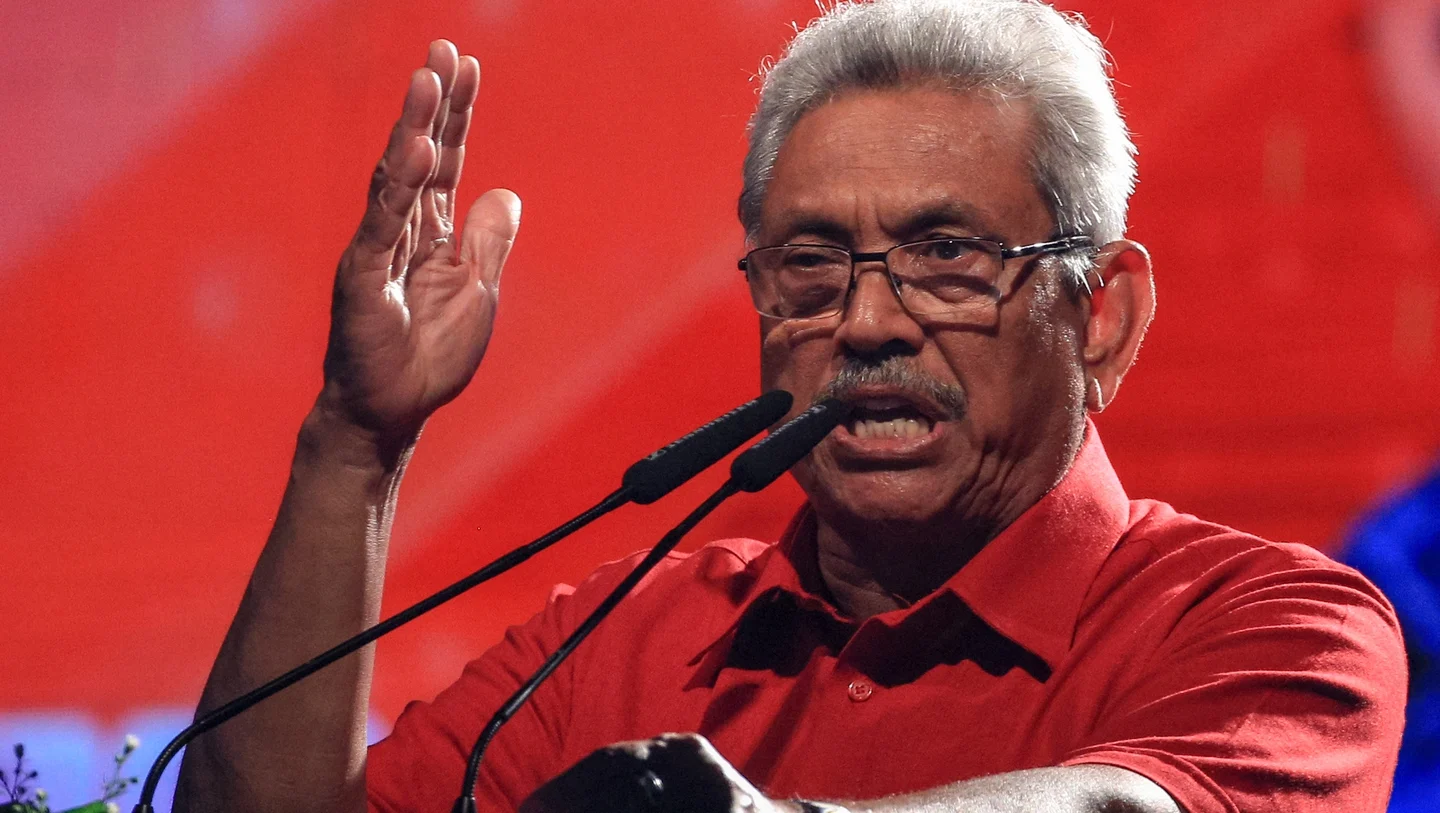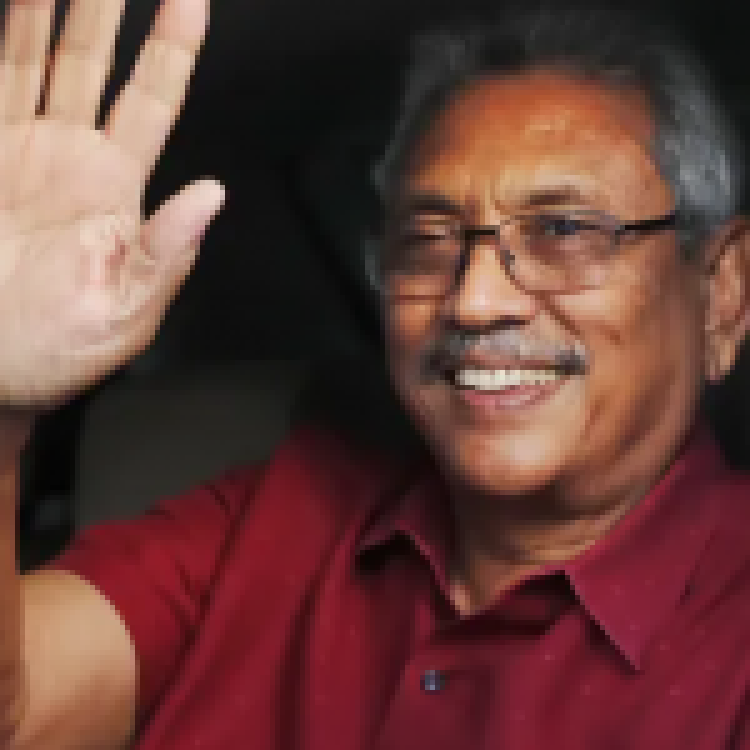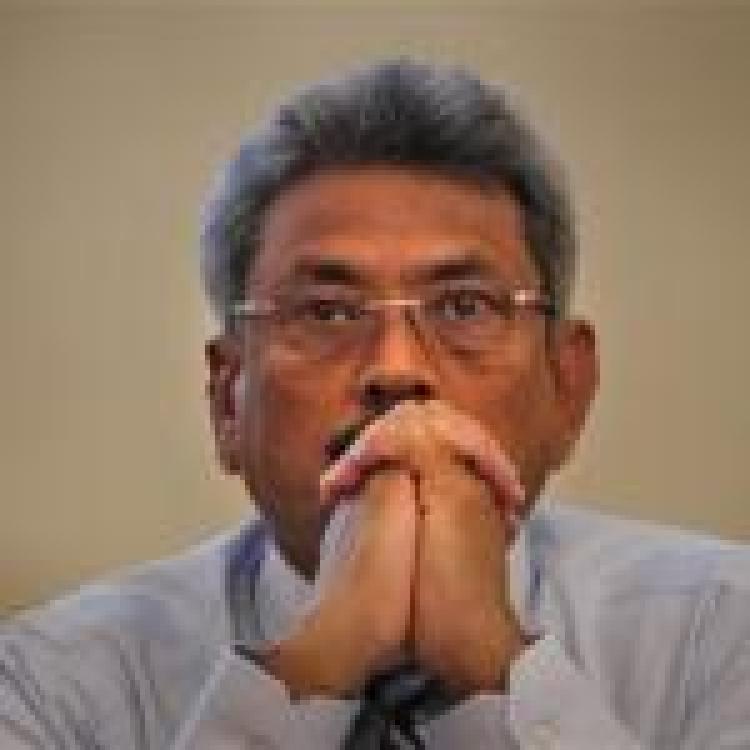
After Sri Lanka’s president fled and took refuge in Singapore, local Tamils have expressed their outrage at the accused war criminal and at their own government for allowing him into the country.
Gotabaya Rajapaksa fled Sri Lanka last week, amidst a wave of protests that saw even his presidential residence ransacked. After boarding a military plane to the Maldives, Rajapaksa then went to Singapore, where he is currently residing.
Singapore authorities have told Rajapaksa that they would not extend his leave beyond the 15 days they had initially granted, but his presence in the country has angered the significant local Tamil population.
“I am upset, hurt and do feel betrayed in some sense but not surprised at the same time,” a local Singaporean Tamil told the Tamil Guardian this week.
Singapore has played host to some nefarious characters before, they highlighted – including Robert Mugabe who received medical treatment and passed away in the country.
Others echoed the comments with a Singaporean lawyer of South Asian descent, telling the Straits Times he was “shocked and hurt” at Rajapaksa’s arrival.
“Isn’t the Parliament in Sri Lanka meeting about where all the money has gone? The very person who is responsible for an economic disaster and has run away – why should Singapore be the country that’s a stopover for him? ... Any Sri Lankan, whether they are Tamil or not, will feel a sting that he is here around us in Singapore.”
An 81-year-old retired criminal law professor a Singaporean of Tamil origin, also told Straits Times, “Lee Kuan Yew always maintained that Sri Lanka is a good example of how we should not treat minorities. The divisive policy is dangerous. So, for [Rajapaksa] to now be let into the country is a disgrace.”
As the BBC’s Tessa Wong reported, Singapore has a significant Tamil population, and with a man accused of engineering the deaths of countless Eelam Tamils in the country his arrival would stir angry sentiments.
“Many Tamil Singaporeans would be furious by his presence, which would in turn rock the peace authorities have painstakingly maintained,” said Wong. “In short, the longer Mr Rajapaksa stays in Singapore, the bigger the headache for authorities. And it may be a headache they would rather do without.”
However, Singapore’s strict laws, which outlaw many displays of public dissent, have left little room for protest. “Action will be taken against anyone participating in a public assembly that is illegal,” warned Singapore’s police after Rajapaksa entered the country. The statement and Singapore’s harsh history has left many Tamils unable to openly express their resentment at the Sri Lankan war criminal’s presence.
On Saturday, Prabu Ramachandran, held a one-man demonstration at Speaker’s Corner in Hong Lim Park – the only place in Singapore where protests can legally be held without a permit.
Many are wary of running afoul of Singapore’s laws. The police warning “basically means jail time,” explained the local.
“The climate of fear is real and that is how the system has been all these years… We have not been able to protest or express our discontent publicly with other issues in Singapore. So how could we with the arrival of Gotabaya Rajapaksa, even though we do not agree with his presence here?”
Though Rajapaksa may not have long left in Singapore, with rumours he will be looking to flee to the Middle East next, locals still want him to face justice for the genocide that he directed.
“I want that asshole to pay for his crimes and face proper punishment for all the death, anguish and loss he has caused Eelam Tamils,” they concluded.
“I am furious you know.”




